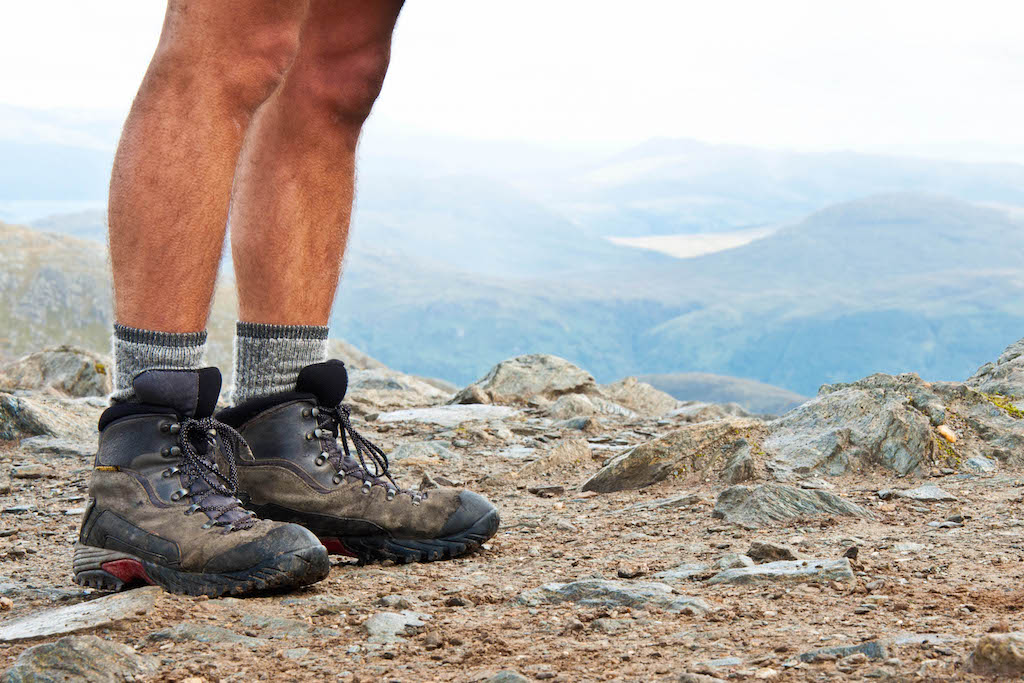Out Adventures’ essential guide to any trekker’s best friend: the hiking boot.
The Four Styles
Hiking Sandals
Often overlooked, the hiking sandal is perfect for short schleps and easy excursions. They’re especially valuable on trails that cross rivers and streams or conclude on a sandy beach. The hiking sandal has a supportive sole but is open on the sides and top. We recommend investing in a pair for tours where hiking isn’t the primary activity, rather an added excursion such as our Galapagos Gay Cruise or The Peruvian Amazon & Machu Picchu tours.
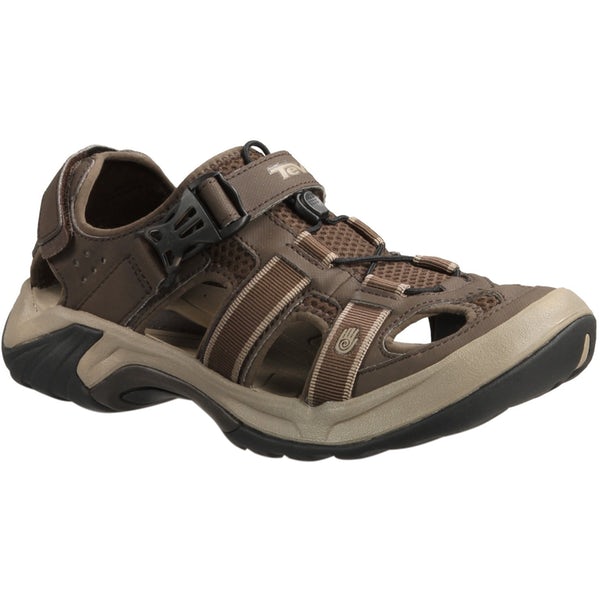
Hiking Shoes
Light in weight and low on the ankle, hiking shoes are excellent for day-to-day treks lasting 1 to 4 hours. They are ideal for flat, hilly and semi-rugged terrains with only a light day pack. We recommend Hiking Shoes for our Azores Islands Adventure, Iceland Pride Adventure and Moroccan Souks & Sands tours.
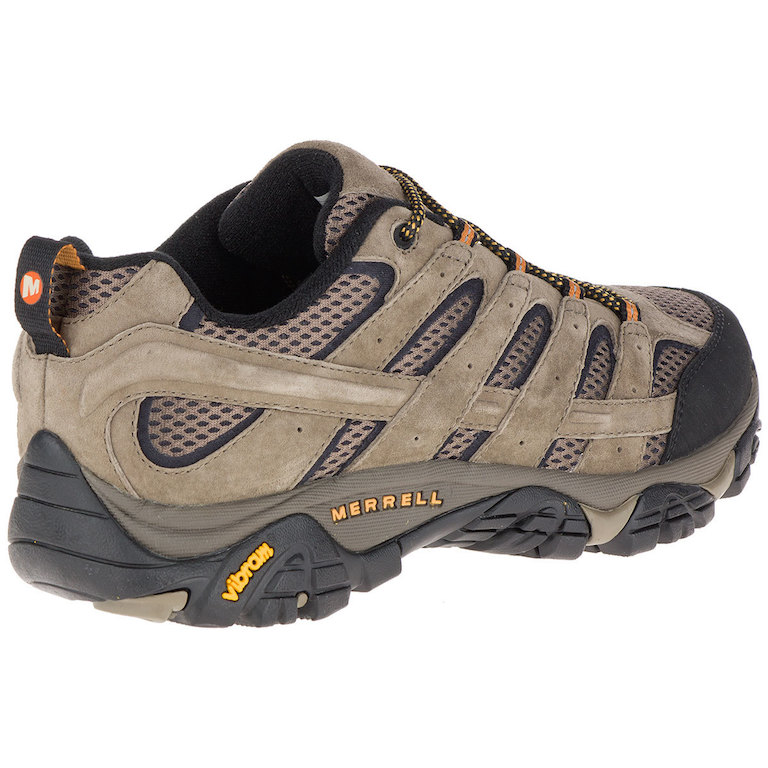
Hiking Boots
These functional boots come halfway up the ankle providing support and protection from rolling your foot on tricky terrain. They’re a versatile option for a wide range of expeditions as they can be effective on light treks and (in a pinch) far more difficult departures. Hiking Boots are good option for our more involved tours such as Norway Gay Mystery Expedition and Spain Gay Madrid and the Camino de Santiago where you will be on your feet for 5+ hours each day but won’t be carrying heavy luggage.
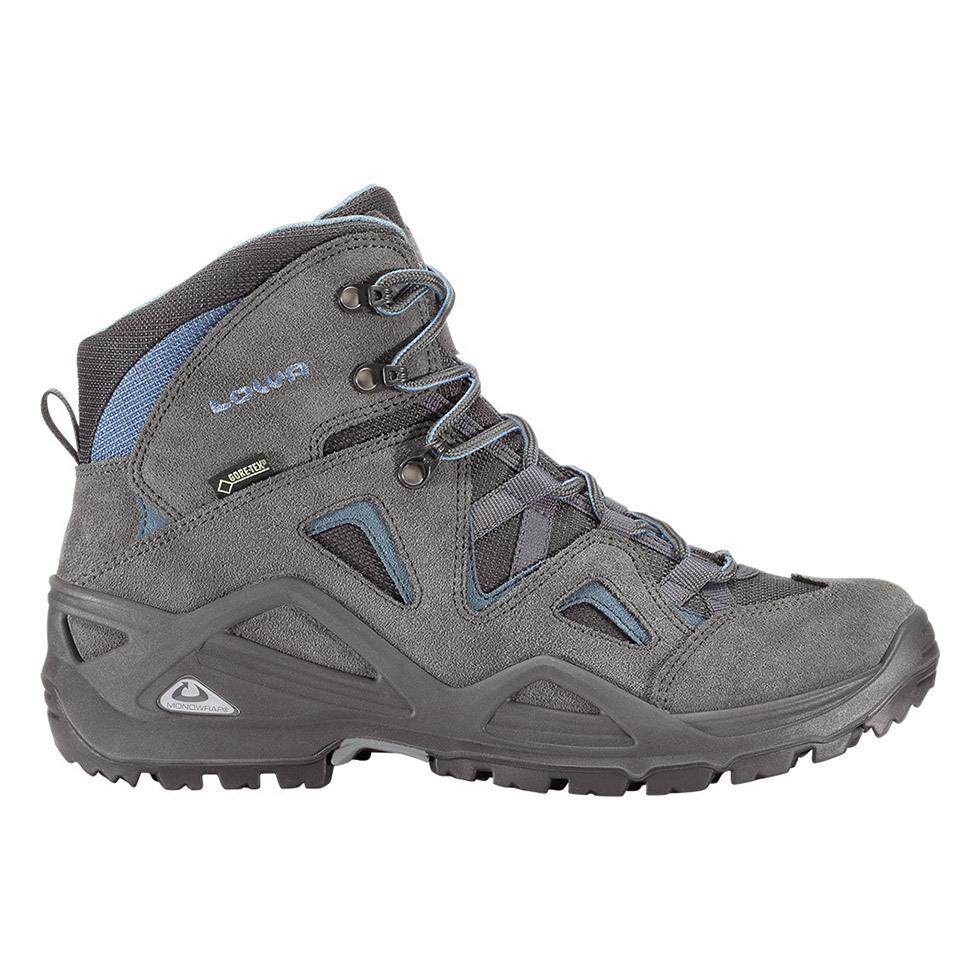
Backpacking Boots
This durable option fully covers your ankles and provides maximum support for your legs and back. While they’re ideal for industrious expeditions, they tend to be heavy and cumbersome making them a poor choice for casual jaunts through the woods. We recommend Backpacking Boots for our Peru The Inca Trail and Machu Picchu tour and Nepal & Everest Base Camp Adventure.
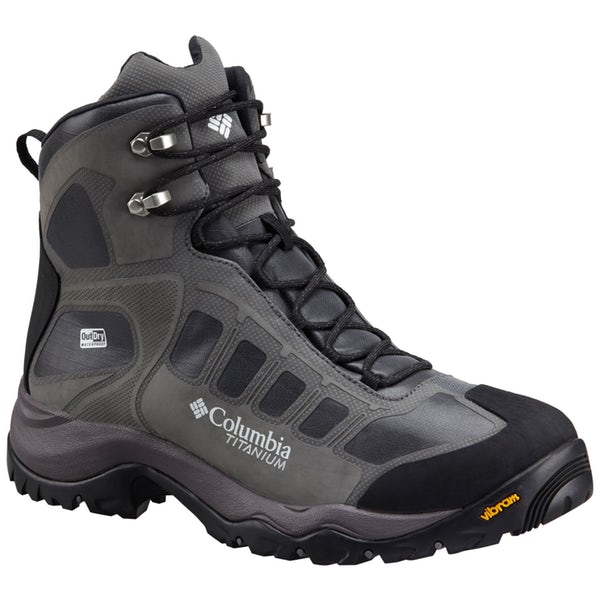
Materials
Leather
Full-grain, split-grain and Nubuck are all common leathers used in hiking boots, each with pros and cons. In general, leather is very durable, resistant and ideal in heavy-duty hiking boots. It’s fairly water resistant but by no means water-proof. The down-side is two-fold: it’s the heaviest material (split-grain being the lightest of the three) and takes ample time to break in.
Synthetics
Polyester, nylon and “synthetic leather” are light and water resistant. They tend to dry quickly and take minimal time to break in. Con: synthetics are more easily prone to wear and tear.
Waterproof
A range of materials are used to waterproof the boot, keeping your feet dry. This is a requirement for portaging and rafting tours. Waterproof boots/shoes might be recommended if your doing heavy hiking during a destination’s rainy season. Unfortunately, waterproof boots don’t breath well causing sweat, odours and potential blisters.
Six Things to Consider Before Buying
- Purchase your boots with the hike(s) you’re going on in mind. This will largely determine the type of boot and material you want.
- Know the perfect fit: snug but not restrictive. When trying on your boots you should be able to fit two fingers into the back of the shoe when your toes are pushed forward. You should also be able to wiggle your toes freely. And when you walk, the shoe shouldn’t move or slip on the foot.
- It’s important to wear the same hiking socks you’ll wear on expedition when testing potential boots. Hiking socks can come in a range of styles and materials, from thin synthetics to thick wools. Your socks will impact the size of boot you decide on. If applicable, bring along your orthotics as well.
- If you can, it’s ideal to shop for hiking boots in the afternoon. Your feet swell throughout the day and you want to purchase boots to fit your swollen rather than rested feet.
- Don’t underestimate the benefits of a high-quality insole. They can add a half size to any shoe to make a perfect fit and are often necessary for those with collapsed arches and individuals who’s feet are different sizes. They also add padding and comfort.
- Finally, it’s all about personal preference. While we recommend hiking boots or backpacking boots on The Inca Trail, many of our clients prefer the light weight of a hiking shoe. Go with what’s right for you. After all, you’re the one who’ll be wearing them.
Two Tips for Post-Purchase
- Hold onto your receipt and original packaging. It’s recommended you trek around your house and outdoors for an extended period to truly test the fit. Both REI (America) and MEC (Canada) offer 100% Satisfaction Guaranteed policies, so if you find the boots aren’t exactly what you’re looking for, don’t be shy to exchange them for another pair.
- Last but far from least, please break in your shoes before your expedition to avoid blistering. Strap on a backpack and take 4 or 5 hikes over two weeks leading up to departure. Trust us, your feet will thank you on expedition.
Get in Contact
If you have any questions about purchasing hiking boots, Out Adventures is here to help. All of our staff are seasoned hikers and have plenty of tips and tricks to choosing the perfect pair of boots for your expedition.
